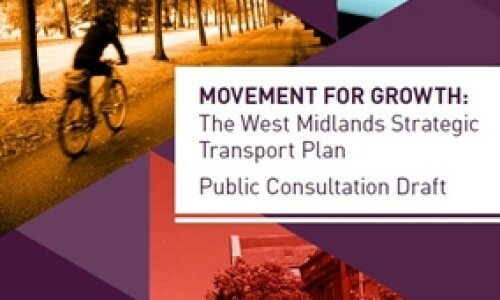
£6.5 billion wish list sets out West Midlands public transport vision
The new West Midlands Combined Authority will need to spend £6.5 billion over the next 20 years to bring public transport up to scratch and match the level of investment pouring into Greater Manchester, a new report has claimed.
When WMCA takes control of transportation it must find £330 million a year to improve roads, bus, tram and local rail services, as well as develop cycle and walking routes according to – a draft version of the latest West Midlands Strategic Transport Plan.
The document, the latest in a series of transport wish lists published over the past 30 years, candidly admits there is a serious cash shortfall that must be plugged.
Under current funding arrangements the West Midlands secures about £130 million a year for local transport, leaving a gap of £200 million that needs to be filled, chiefly to build the rail and rapid transit network and improve roads.
The draft plan, published by the West Midlands Integrated Transport Authority (WMITA), puts forward five suggested ways of securing an additional £200 million a year:
- A West Midlands Transport Investment Fund could raise £1.2 billion over 20 years – the equivalent of £3.50 a month for every adult in the region. The document suggests the money will come via a contribution from existing and future businesses, developers and residents.
- Appealing to the Government to give the West Midlands a bigger share of transport funding through local growth deals.
- Securing investment from Network Rail, the HS2 connectivity programme and Midlands Connect initiatives, said to be “critical in developing suburban rail elements of our long term rail and rapid transit network”.
- Recognising the benefits of the long term programme for European Union policy, funding will be sought from European Union funding streams related to sustainable urban mobility.
- Pursuing other existing and new funding sources, including the potential for public health funding of walking and cycling improvements.
The document admits it will take years to reach £330 million annual capital investment.
Travel demand is forecast to increase by 22 per cent over the next twenty years, due to increased population and higher employment levels, according to the draft plan. This combined with a long term trend for longer journeys, particularly for work, gives a 34 per cent forecast increase in the number of car miles travelled – an extra 1.2 million car journeys per weekday.
But the WMITA does not think building new roads is a very good idea.
Evidence of adding significant new highway capacity in congested urban areas is that induced traffic leads to problems of poor connectivity for people and goods persisting – congestion just involves a higher magnitude of traffic.
This is alongside increased requirements for large scale parking where land is scarce and at a premium, and impact on air quality, road safety and severance of communities by busier roads.
The document sets out some familiar aims:
We will make great progress for a Midlands economic ‘Engine for Growth’, clean air, improved heath and quality of life for the people of the West Midlands. We will do this by creating a transport system befitting a sustainable, attractive conurbation in the world’s sixth largest economy.
The vision for the metropolitan rail and rapid transit network is based on suburban rail, metro, very light rail and SPRINT lines on suitable links of one single network. This is effectively integrated with local bus networks at main centre interchanges and local interfaces, underpinned by park and ride.
The creation of this one, single high quality network by the ITA will be a major transformation to public transport in the West Midlands.
Movement for Growth promises to:
- Introduce a fully integrated rail and rapid transit network that connects main centres with quick, frequent services, and which is connected into wider local bus networks.
- Increase the number of people that are within 45 minutes travel time by public transport to a minimum of three local centres and the two HS2 stations.
- Reduce transport’s impact on the environment – improving air quality, reducing carbon emissions and improving road safety. Use transport improvements to enhance the public realm and attractiveness of our centres
- Ensure that walking and cycling are an attractive option for many journeys especially short journeys, by delivering a strategic cycle network and enhancing local conditions for active travel.
- Make it easier for people to us public transport to access education and employment opportunities and health and leisure services.
- Enable businesses to connect to supply chains, key markets and strategic gateways through improved strategic connections by road and rail.
Similar Articles
Council pockets £14m airport dividend, but it’s no cause for celebration 6
Birmingham city council has pocketed a £14.2 million dividend from Birmingham Airport. The council, which part-owns
Dale’s Diary: Ali v Ward and cabinet reshuffle, all the gossip you need to know 11
Speculation surrounding John Clancy’s cabinet reshuffle and the deputy leadership battle between Ian Ward and
BBC unveils major investment package to safeguard Birmingham presence 7
Here is the news from the BBC – and for once it’s a good story
Voters warming to Metro Mayor….but only after they are told what one is 6
The idea of an elected metro mayor overseeing the West Midlands Combined Authority is gathering
Investors invited to get a slice of £85 billion West Midlands economy 9
The West Midlands Combined Authority will showcase multi-million pound investment opportunities across the region at










